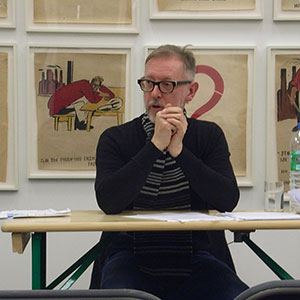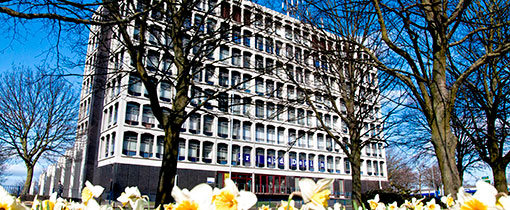
The Problems and Horizons of Socially Engaged Art Today
Wolverhampton School of Art / Centre for Art, Design, Research & Experimentation / FEINART
By Prof John Roberts, Professor of Art & Aesthetics at the University of Wolverhampton and Project Manager of FEINART
Introduction and moderation:
Prof Karen van den Berg, Zeppelin University
Abstract
The paper will focus on two areas in particular: the relationship between socially engaged art and theatre and dramaturgy, and more broadly – philosophically - the relationship between democracy, the in-common, and freedom.
Biography
John Roberts is Professor of Art & Aesthetics, in the Faculty of Arts, Business and Social Sciences, and leader of the Research Cluster 'Art Philosophy and Social Practice'. He is the PI (Principal Investigator) for a recently awarded Marie Curie Innovative Training Network (ITN) (The Future of European Independent Art Spaces in a Period of Socially Engaged Art [FEINART]).
FEINART is an ambitious, pan-European ITN, supported by Marie Curie-Sklodowska Actions, committed to providing high quality training for 11 ESRs (Early-Stage Researchers) in the area of art and social engagement. The network covers four beneficiaries (University of Wolverhampton, UK; Edinburgh University UK; Zeppelin University, Germany; University of Iceland) and 7 partners (Tensta Konstall, Sweden; BAK, Netherlands; State of Concept, Greece; W-Est, Italy; Tranzit.ro, Romania; Biennale Warsaw, Poland; and Iceland University of the Arts, Iceland).
His research has covered three main areas since the early 1990s: art’s critical autonomy, the possibility of realism in art (as a claim on ‘truth’ as opposed to realist ‘aesthetics’ or ‘resemblance’) and emancipatory technique.
More Talks
Centre for Art, Design, Research & Experimentation

The Centre for Art, Design, Research & Experimentation (CADRE) accommodates researchers within the Wolverhampton School of Art. It was established in 2006 to explore and develop the beneficial effect of art and design upon society. The Centre is clustered into three focused areas of research interests: Art, Society and Social Practice; Digital Technology Theory and Practice; Material and Theoretical Practice.


/prod01/wlvacuk/media/departments/digital-content-and-communications/images-2024/Diane-Spencer-(Teaser-image).jpg)
/prod01/wlvacuk/media/departments/digital-content-and-communications/images-18-19/220325-Engineers_teach_thumbail.jpg)
/prod01/wlvacuk/media/departments/digital-content-and-communications/images-2024/240509-Menopause-Research-Resized.jpg)
/prod01/wlvacuk/media/departments/digital-content-and-communications/images/Maria-Serria-(teaser-image).jpg)
/prod01/wlvacuk/media/departments/digital-content-and-communications/images-2024/241014-Cyber4ME-Project-Resized.jpg)
/prod01/wlvacuk/media/departments/digital-content-and-communications/images-2024/240315-Research-Resized.jpg)
/prod01/wlvacuk/media/departments/digital-content-and-communications/images-2024/BDA-group-photo.jpg)














